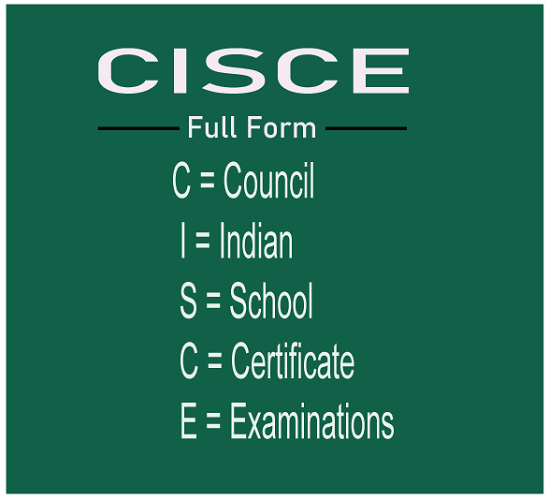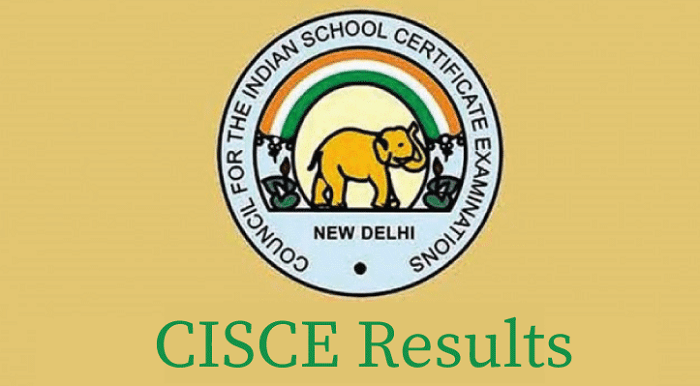What is the full form of CISCECISCE: Council for the Indian School Certificate ExaminationsC.I.S.C.E. stands for The Council for the Indian School Certificate Examinations (C.I.S.C.E.) and is an Indian semi-government-run, privately held public-level school training administering body that oversees the Indian Certificate of Optional Training (I.C.S.E.) Evaluation for Class X and the Indian School Certificate (I.S.C.) for Class XII. It was designed in 1958. The C.I.S.C.E. works with around 2,300 schools in India and internationally. It is also regarded as a 'Non-Legislative Leading Body of School Education'. 
This Indian Council was formed because a board was anticipated to handle the examinations led in India by the College of Cambridge and best to match them to the country's needs. Cambridge College was in charge of future educational arrangements. The U.K.'s public admissions and licensing authority, UCAS (Universities and College Admission Services), considers I.S.C.E. to be on par with the College of Scotland's Higher School competence. I.C.S.E. (Indian Certificate of Secondary Education) is well-known for its comprehensive curriculum, centring on the English language and various disciplines such as language, expressions, commerce, and science because I.C.S.E. is mainly taught in English, an I.C.S.E. understudy gains a superior command of the English language and writing compared to their peers, assisting understudies in writing concisely in English. This makes it easier for those who aced the I.C.S.E. exam to do well in competitive language examinations like IELTS and TOEFL. Regarding its complete timetable, intensive stamping strategy for tests, moderate assessment and advancement criteria, I.C.S.E. has always been regarded as one of the world's most mind-boggling educational boards. Some of India's premier schools are affiliated with the I.C.S.E. board, including Sherwood College in Nanital, Doon School in Dehradun, Mayo Young lady's College in Ajmer, La Martiniere College in Lucknow, and others. BeginningMaulana Abul Kalam Azad, Pastor for Education, presided over an All-India Certificate Examinations Meeting in 1952. The primary reason for the meeting was to discuss replacing the overseas Cambridge School Certificate Assessment with an All-India Assessment. This laid the groundwork for the Council's formation. At the meeting of the Between State Board for Somewhat English Indian Education in October 1956, a proposal was accepted for the establishment of an Indian Council to manage the College of Cambridge, Nearby Examinations Partner's Assessment in India and to advise the Organization on the most effective way to adjust its assessment to the needs of the country. On November 3rd, 1958 the Council had its inaugural meeting. In December 1967, the Council was enlisted as a General public under the Social orders Enrollment Act of 1860. The Council's MissionThe Council for the Indian School Certificate Examinations is keen to help the country's children through bizarre educational endeavours, sanctioning them to contribute to an others-aware, just, and pluralistic culture and promoting contemplative living by disseminating exciting learning opportunities with a pledge of significance. The Ethos of the Council
As an innovator in the arrangement of overall educational endeavours, the Council's tremendous experience and shrewdness are called upon in numerous forums, including the Council of Sheets of School Education in India (C.O.B.S.E.), State Education Divisions, the Leading Focal group of Secondary Education (C.B.S.E.), the Public Council for Educational Exploration and Preparation (N.C.E.R.T.), the Service for Human Asset Improvement, and the Arranging Commission, confirming the natural trustworthiness. ExaminationsThe Indian School Certificate Examinations Council is in charge of three exams: the Indian Certificate of Discretionary Preparation (I.C.S.E. - Class X), the Indian School Certificate (I.S.C. - Class XII), and the Certificate in Capable Guidance (C.V.E. - Year 12). The topic choices and prospectuses recommended for these exams have been modified to support the extraordinary abilities of individual understudies. 
The Indian Certificate of Secondary Education was designed to evaluate a general education course using English, as suggested by the New Education Strategy of 1986. Confidential competitors are not permitted to attend this evaluation.
The Indian School Certificate Assessment is an English-based assessment created in line with the New Training Procedure 1986 after a two-year course of study beyond the Indian Certificate of Optional Instruction (Year 10) appraisal or its equivalent evaluation.
The Certificate of Professional Education Assessment (C.V.E. - 12) was created as an assessment by the suggestions of the Ministry of Human Resource Development (M.H.R.D.) via the Joint Council of Professional Education (J.C.V.E.) outlined in the Public Strategies of Education 1986. Understudies who have completed a lengthy course of instruction past the Indian Certificate of Optional Schooling (Year 10) evaluation or an equivalent appraisal in English can take this assessment. DivisionsThe Council has effectively focused on areas of concern in education to provide new experiences, disseminate imaginations, and stir new emotions to transmit more enticing teaching-learning arrangements. The I.C.S.E. and I.S.C. divisions continuously create new prospects, educational programme structures, and assessment frameworks to make education more relevant, challenging, and engaging. Divisions - I.C.S.E (Class X)Indian Certificate of Secondary Education Examination The Indian Certificate of Optional Schooling Assessment was designed to provide an assessment in a general education course by the New Schooling Strategy 1986, thanks to English. As all newcomers are required to enter and sit for six courses and Socially Valuable Useful Work, the Indian Certificate of Optional Schooling Assessment will guarantee overall teaching with almost no expansion of concentrations. The Indian Certificate of Optional Training Assessment is a school evaluation, and the norm of the assessment presupposes a ten-year school course (Classes I-X). Confidential competitors are not permitted to attend the evaluation. Divisions - I.S.C (Class XII)Indian School Certificate Examination According to the recommendations of the New Instruction Strategy 1986, the Indian School Certificate Examination was meant as an assessment, thanks to English, following a two-year course of studies beyond the Indian Certificate of Optional Training (Year-10) Assessment or its equivalent. All participants must enter and complete English (obligatory), three, four, or five optional courses, and have passed internal School exams in Socially Helpful Useful Work and Local Area Administration (necessary). The review is not open to confidential competitors. Divisions C.V.E (Year 12)Certificate of Vocational Education Examination The Certificate of Expert Preparation Evaluation (C.V.E. - 12) was developed as an evaluation in line with the principles of the Human Asset Advancement Service (M.H.R.D.) as defined in the Public Course of Action of Guidance 1986. This evaluation can be taken by students who have completed a long-term course of studies beyond the Indian Certificate of Optional Schooling (Year 10) assessment or its equivalent, thanks to English. The C.V.E. programme is intended to prepare students for specific occupations. These tests are not open to confidential competitors. Affiliation
Next TopicFull Forms List
|
 For Videos Join Our Youtube Channel: Join Now
For Videos Join Our Youtube Channel: Join Now
Feedback
- Send your Feedback to [email protected]
Help Others, Please Share










